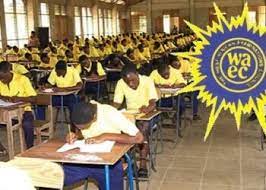Teaching is one of the oldest and noble professions, driven by passion in most cases. In this piece, MARTIN PAUL abridges the passion that drives Mrs. Aisha Kadiri into, not just teaching, but teaching in refugees and IDPs camps, in conflict zones.
The dean, School of Early Childhood Care and Primary Education, Federal College of Education Yola, Adamawa state, Mrs. Aisha Kadiri, last week at the celebration of 2016 World Teachers Day, spoke on the concern of teachers working in conflict zones in the country.
Unmistakably, Aisha has vast experience of working in refugee camps and Internally Displaced Persons (IDPs) camps with primary and secondary school children and teachers, who are severely traumatised.
“In the work I do in the camps I have seen children who have been so affected by what they have experienced or witnessed that they are completely cut-off and distracted when they are in class. They need to be brought out of their trauma with teachers trained in psychosocial skills,” Aisha, a specialists in capacity-building of teachers/caregivers, the development of play materials and implementation of the Safe Schools Initiative, said.
Teachers bring order and discipline back to their lives
“When we arrive at the camp gates they surge forward to take anything that we are bringing as school materials. Often they have been subjected to a lot of violence and will be very aggressive themselves, beating each other all the time. We, as teachers, have to bring order and some discipline back to their lives. We have to teach them to sit and be patient, to pay attention. Often the security personnel they come into contact with will also have to be retrained that it is not normal to deal with children violently.
“When it comes to teachers, many of whom may be from the camps themselves and are volunteers, we have to build their capacity on how to engage the children and make learning materials from their own environment. Once the children engage and become busy they are so much easier to teach.”
Ensuring a future for children
She is clear on what motivates teachers in such insecure circumstances. Many have fled their own homes and are working without support materials and often without pay for many months.
“These teachers have seen their communities destroyed. They want to ensure that these children do not have their futures also destroyed. We can offer them training to help them remain committed to seeing that the lives of these children do not stop”, she added.
Aisha, who was speaking recently at a UNESCO International Conference on the Prevention of Violent Extremism through Education, said, already, “much has been done by the government to improve safety, but teaching remains an unsafe profession.
“Sporadic attacks are carried out to build fear in people’s minds and create havoc. Teachers in particular can feel menaced and it is made worse by the fact that you don’t always know who your enemy is. It may be your neighbour who has been brainwashed.”
“Teaching has to come from the heart. It often involves sacrifice. As soon as you lose your passion and start to question everything, it is much more difficult to do your best. I understand motivation from my own circumstance. When I was invited to speak at this UNESCO conference, I was not expecting it, but I felt that someone, somewhere in the world had recognised my work and it made it easier to carry on”, Aisha added.



